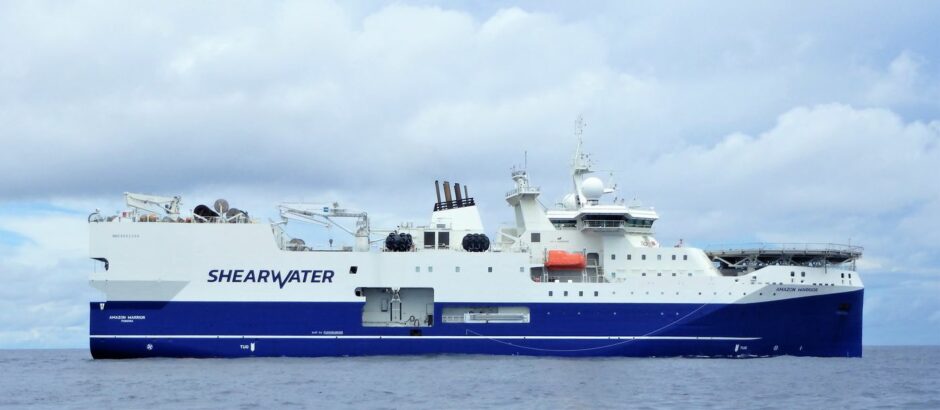
A South African court has ordered Shell to halt its seismic work offshore the Wild Coast, based on seeming failures on local consultations.
Judge Gerald Bloem ordered an “interim interdict” of seismic work on ER 12/3/252. The company, and the Department of Mineral Resources and Energy (DMRE), were ordered to pay costs.
Sitting in the Grahamstown High Court, in Makhanda, Bloem said Shell had a duty to consult with the communities who the seismic survey would have an impact upon. Shell had failed to do this, he said.
The company had a duty to engage with locals, the judge ruled. The process by which the company did so was “inadequate and substantially flawed”.
A Shell spokesperson said: “We respect the court’s decision and have paused the survey while we review the judgement. Surveys of this nature have been conducted for over 50 years with more than 15 years of extensive peer-reviewed scientific research.
“South Africa is highly reliant on energy imports for many of its energy needs. If viable resources were to be found offshore, this could significantly contribute to the country’s energy security and the government’s economic development programmes.”
The Amazon Warrior began shooting the seismic, which will cover 6,011 square km, in early December. The company had expected to end the work in April.
Communication failure
Those opposing Shell’s work had claimed the company lacked authorisation under the National Environmental Management Act (NEMA).
Locals had complained the seismic work would disrupt those living in the area, in addition to allowing future production of fossil fuels, which would drive extreme weather.
The ruling found that Shell had advertised its plans only in English and Afrikaans, not in the local communities’ language of isiZulu or isiXhosa. “Given the nature of the communities in question, the notification provided by Shell was inadequate.”
Furthermore, the company’s consultations with communities focused on engagements with the leaders or kings, rather than the broader populace.
Marine life
The judgement went on to note a number of scientists’ concerns about the impact of seismic sources on local wildlife.
A previous ruling, from early December, found these concerns to be “speculative at best”. However, Bloem found that the new application did provide a “reasonable apprehension” that it would harm marine life. He also found that Shell’s proposed mitigation measures were inadequate.
Shell, and Impact Africa, must complete the survey work before May 2022 or lose the exploration right. Bloem decided this was not sufficient reason to allow the seismic to go ahead.
The question pits financial losses for the companies against constitutional rights of the people living nearby – with the judge saying the latter takes precedence.
The judge also noted that Minister Gwede Mantashe had expressed support for Shell’s work. The minister had compared opposition to the seismic to apartheid. As such, an appeal to the minister by the local communities would have “been a waste of time”.
Bloem’s ruling said another court would need to determine whether Shell had environmental authorisation in line with NEMA.
“This case reminds us that constitutional rights belong to the people and not to government, and that the only way that we can assure that the rights of indigenous people are living – and not just written on paper – is if we challenge government decisions that disregard these rights,” said Sinegugu Zukulu of Sustaining the Wild Coast (SWC).
